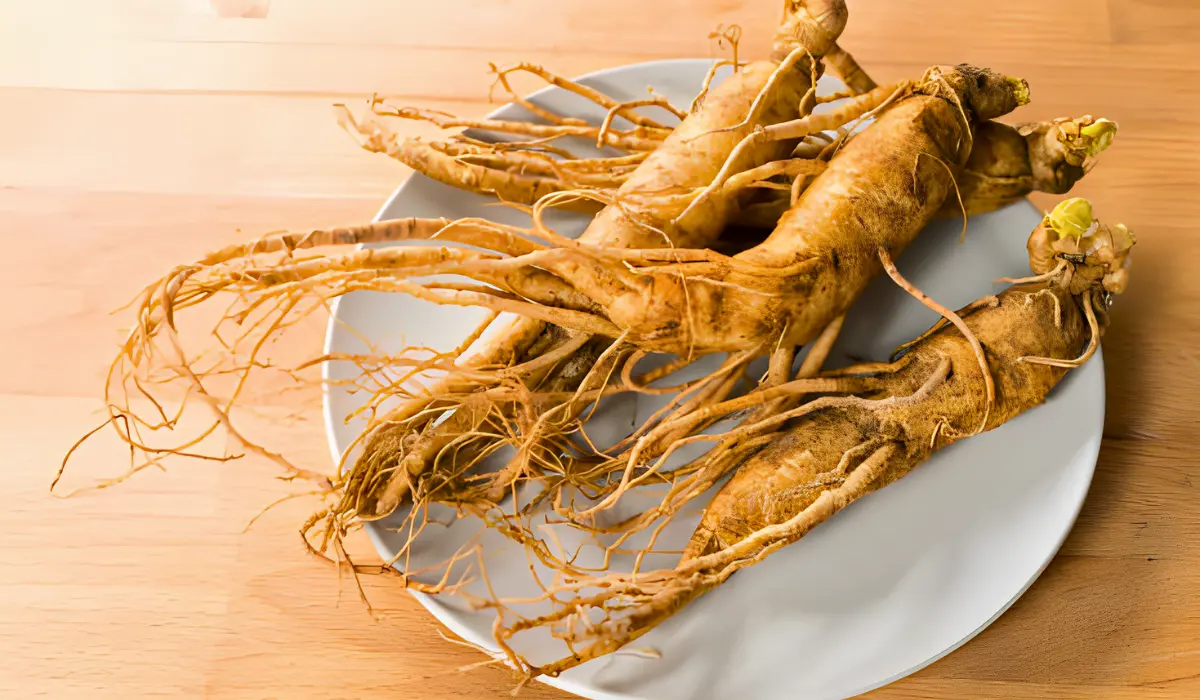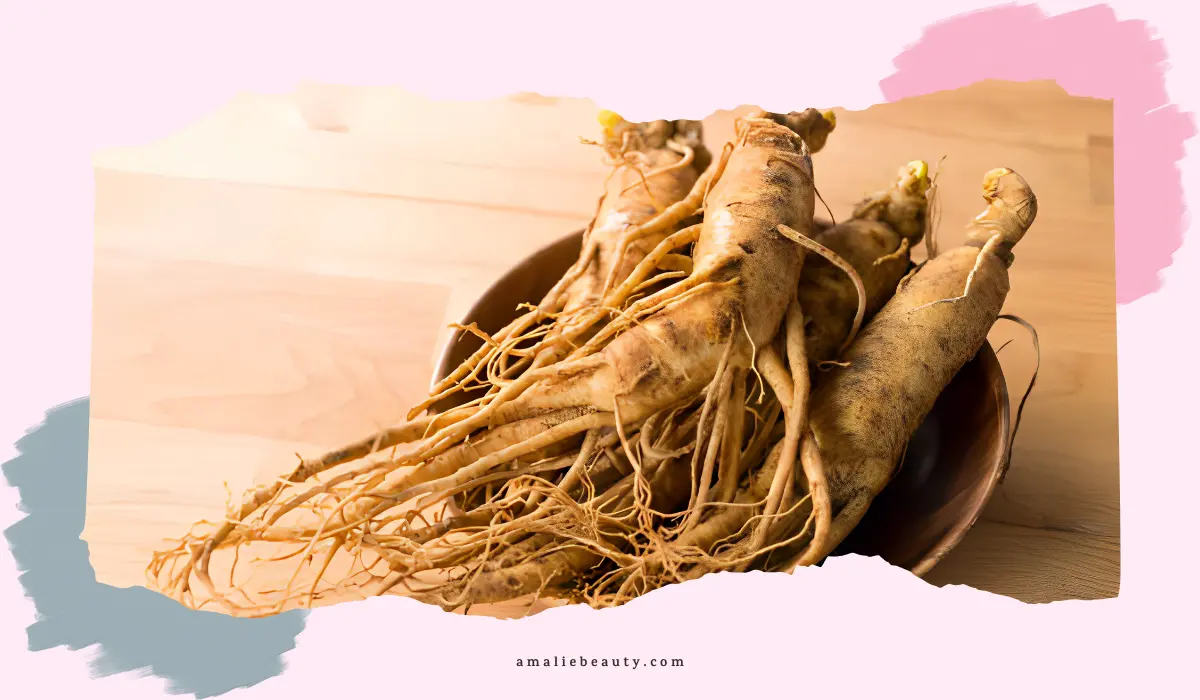Ginseng is a kind of plant with a special root that people use for different things. Also, ginseng is very popular, but people still have some misconceptions about it. Thus, people often ask: does ginseng have caffeine? However, you should know that when you use ginseng, you don’t get caffeine.
If you have heard of the benefits of ginseng, then you are not alone. When my friend told me about its benefits, I wanted to use it. So, I made tea with the ginseng root, and it made me feel a bit energetic. However, I did not use any supplements, which are available in many forms on the market, such as tablets, capsules, and powders. Here, I will explore ginseng in detail so that you can decide whether you should use it or not. Also, I will clear the misconception: does ginseng have caffeine?
What Is Ginseng?
Ginseng is like an herbal supplement that is made from the root of a ginseng plant. Also, ginseng can be of different types, such as American, Korean, and South Chinese ginseng. Moreover, you may find it interesting that is used for medical purposes for a long time. However, the United States Food and Drug Administration has not approved it for use as a prescription drug.

Different Types Of Ginseng And Their Benefits
Ginseng comes from the Panax plant and can be of different types: Korean ginseng, known as Panax ginseng; South China ginseng, known as Panax notoginseng; and American ginseng, known as Panax quinquefolius. Also, different types can provide different benefits, according to studies. Now, let me explain some potential benefits of using ginseng in your daily lifestyle.
1. It Can Boost Your Energy Levels
As I mentioned above, when I drank ginseng tea, it made me feel a bit energetic. Some animal studies have also found that ginseng is helpful in increasing energy levels. Also, you can manage some of the symptoms of chronic fatigue syndrome when you use ginseng supplements. However, you should know that ginseng is not approved for use as a prescription drug.
2. It Can Help You Manage Your Blood Sugar Levels
If you are suffering from type 2 diabetes, then you can manage your blood sugar levels with ginseng. Studies suggest that ginseng can help increase insulin production in the body, which is helpful for your blood sugar levels. However, more research is needed to support such claims, and you should consult with your doctor before taking ginseng supplements.
3. It Can Be Helpful For Your Mental Health
If you are dealing with stress, anxiety, and depression-type issues, then you may find ginseng helpful. This is because when free radicals try to damage your brain, components in ginseng, like ginsenosides, will provide protection. Moreover, you can improve your social behavior, which can be a wonderful benefit of ginseng.
4. It Can Improve Your Sexual Ability
If you believe in some research, then you may want to use ginseng to improve your sexual ability. This is because it can help you manage your condition of erectile dysfunction. Also, it contains antioxidants, which are helpful to manage oxidative stress in blood vessels.
5. It Can Also Increase The Ability Of Your Immune System
According to some studies, ginseng has anti-bacterial and anti-fungal properties. Also, it can it can help you increase your immune cells. Thus, you can improve the ability of your immune system, and this way, you can prevent many diseases.
Understanding Caffeine
You can get it from coffee, tea, cola, and cocoa, which are special substances that can wake up your brain and help you stay alert. Ginseng also provides you with similar benefits, and that is why people often ask: does ginseng have caffeine?
If you want to know how caffeine works, then you should know that it blocks a sleepy signal in your brain called adenosine. Also, it helps your brain release a helpful messenger called acetylcholine. Fortunately, this messenger helps you stay more focused and awake. However, if you consume too much caffeine, then it can cause headaches, trouble sleeping, and restlessness.
Does Ginseng Have Caffeine?
People often ask: does ginseng have caffeine? Well, you should know that you can benefit from other components in ginseng, like ginsenosides and antioxidants, but not caffeine because it does not contain it. Thus, you should get rid of this misconception and stay aware of real facts.
How To Use Ginseng Properly?
Ginseng is available in the market in many forms, such as tablets, capsules, powder, and in its natural form. Thus, you many many options to use ginseng in your daily life. If you want to take capsules or tablets, then you can take 1 with your food twice a day. Also, if you like powder, then you can mix it in water, juice, or even your smoothies.
However, you should consult with a doctor to know the specific dosages of ginseng supplements. Moreover, if you want to use ginseng in its natural form like I did, then you can boil the ginseng root to make tea.
Conclusion
Ginseng supplements are in demand because many people want to take them in their daily lives. However, it is not approved for use as a prescription drug, and you must consult with your doctor before taking any supplements. Above, I have explained everything you should know about ginseng, including how you can use it properly. Also, I have cleared your misconception that it does not contain caffeine. Thus, make an informed decision whether you want to use it or not.
FAQs
Ginseng is similar to caffeine, and it has stimulant effects. Also, it can boost your alertness and energy levels, which you also get from caffeine.
Ginseng can help you awake and alert because fighting tiredness and enhancing focus are its benefits.
Yes, increasing energy levels is one of the main benefits of using ginseng in your daily life.
Ginseng can increase energy levels, and if you take it close to your bedtime, then it may affect your sleep. Thus, you may prefer to take ginseng a few hours before your bedtime.
Usually, people take ginseng every day as a diet supplement, but you must consult with your doctor for specific dosage instructions.

